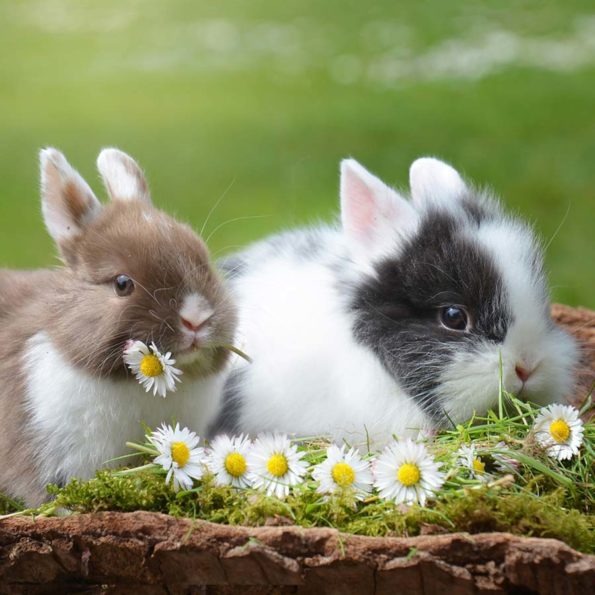Table of Contents
Aggression in pet rabbits can be challenging, but with understanding and the right approach, you can create a peaceful and happy environment for your furry friend. This guide provides effective strategies for dealing with aggression in pet rabbits, helping you address the root causes and manage their behavior. Here are seven strategies to help you and your rabbit live harmoniously.

1. Understand the Root Causes of Aggression
Aggression in rabbits can stem from various underlying causes:
- Territorial Behavior: Rabbits can become aggressive when they feel their territory is being invaded.
- Fear: Fear and anxiety can trigger aggressive behavior in rabbits.
- Pain or Illness: Health issues can cause rabbits to act out aggressively.
- Hormones: Unspayed or unneutered rabbits are more likely to display aggressive behavior.
Understanding the root causes helps you address the underlying issues contributing to your rabbit’s aggression.
2. Create a Safe and Comfortable Environment
Ensuring your rabbit feels safe and comfortable is crucial for reducing aggression:
- Secure Housing: Provide a secure and spacious living area with hiding spots.
- Consistent Routine: Maintain a consistent routine to help your rabbit feel secure.
- Quiet Space: Ensure your rabbit’s living area is quiet and free from loud noises and disturbances.
A safe and comfortable environment helps reduce stress and aggression in rabbits.
3. Handle with Care
Handling your rabbit gently and respectfully can prevent aggressive reactions:
- Gentle Approach: Approach your rabbit slowly and speak softly to avoid startling them.
- Proper Handling: Learn the correct way to pick up and hold your rabbit to make them feel secure.
- Respect Boundaries: Respect your rabbit’s boundaries and avoid forcing interactions.
Handling your rabbit with care helps build trust and reduces aggressive behavior.
4. Socialize Your Rabbit
Proper socialization can help reduce aggression in rabbits:
- Positive Interactions: Encourage positive interactions with humans and other pets.
- Gradual Introduction: Introduce new people and animals slowly to prevent overwhelming your rabbit.
- Playtime: Provide regular playtime to stimulate your rabbit mentally and physically.
Socializing your rabbit helps them feel more comfortable and less likely to display aggressive behavior.
5. Spay or Neuter Your Rabbit
Spaying or neutering your rabbit can significantly reduce aggression:
- Hormonal Changes: Spaying or neutering reduces hormonal-driven aggressive behavior.
- Health Benefits: It also provides various health benefits, including reducing the risk of certain cancers.
- Behavioral Improvement: Many rabbits show improved behavior post-surgery.
Spaying or neutering is an effective step in managing aggression in rabbits.
6. Provide Mental and Physical Stimulation
Keeping your rabbit mentally and physically stimulated can help reduce aggression:
- Toys and Enrichment: Provide toys, tunnels, and other enrichment activities to keep your rabbit engaged.
- Exercise: Ensure your rabbit gets plenty of exercise outside their cage.
- Training: Use positive reinforcement training to teach your rabbit new tricks and behaviors.
Stimulation helps prevent boredom and frustration, which can lead to aggressive behavior.
7. Seek Professional Help
If aggression persists, seek advice from a professional:
- Veterinarian: Consult a vet to rule out any medical issues causing aggression.
- Animal Behaviorist: An animal behaviorist can provide tailored advice and training techniques.
- Rabbit Rescue Groups: Reach out to rabbit rescue groups for additional support and resources.
Professional help can provide insights and solutions to manage and reduce aggression in your rabbit effectively.
Conclusion on Dealing with Aggression in Pet Rabbits
Dealing with aggression in pet rabbits requires patience, understanding, and the right approach. By following these strategies for dealing with aggression in pet rabbits, you can create a harmonious and peaceful environment for your furry friend. Understand the root causes, create a safe environment, handle with care, socialize your rabbit, spay or neuter, provide stimulation, and seek professional help if needed. For more information on rabbit care and behavior, visit the ASPCA and House Rabbit Society.
FAQs on Dealing with Aggression in Pet Rabbits
Why is my rabbit suddenly aggressive?
Sudden aggression in rabbits can be caused by changes in their environment, fear, pain, or hormonal changes. It’s important to identify and address the underlying cause.
How can I safely handle an aggressive rabbit?
Approach your rabbit slowly and speak softly. Use a towel to wrap your rabbit gently if needed, and handle them with care to avoid triggering aggressive reactions.
Will spaying or neutering my rabbit stop aggressive behavior?
Spaying or neutering can significantly reduce hormonal-driven aggression and improve overall behavior in rabbits.
What should I do if my rabbit bites me?
Stay calm and avoid reacting aggressively. Clean the wound thoroughly and seek medical attention if necessary. Identify the cause of the bite and address it to prevent future incidents.
Can aggression in rabbits be treated with training?
Yes, positive reinforcement training can help manage and reduce aggressive behavior in rabbits. Consistent training and socialization are key to success.
When should I seek professional help for my rabbit’s aggression?
If your rabbit’s aggression persists despite your efforts, consult a veterinarian or an animal behaviorist for professional advice and tailored solutions.











